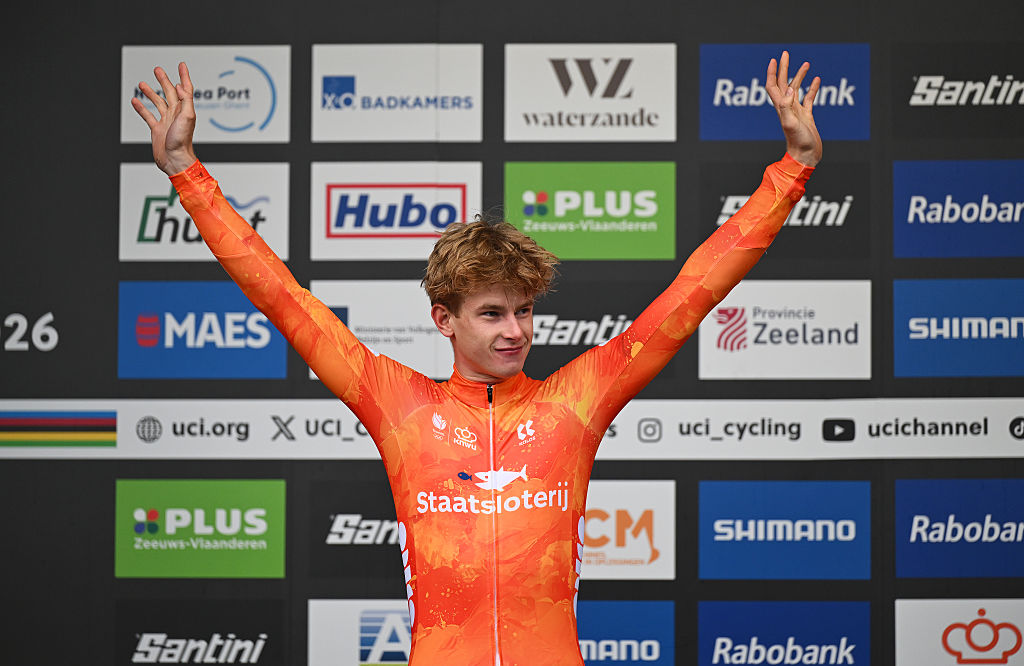It's time to win
Perhaps you first came to know Filippo Pozzato when he appeared on television screens with his hands...
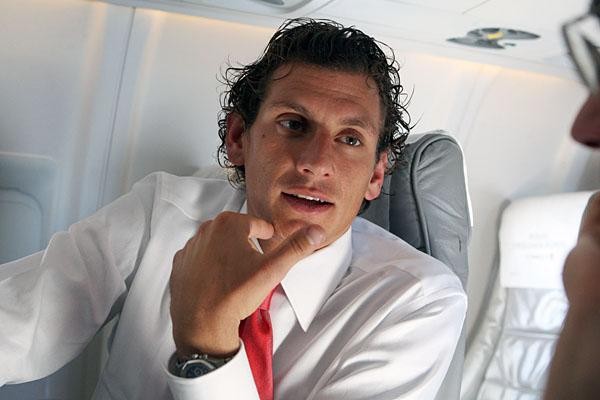
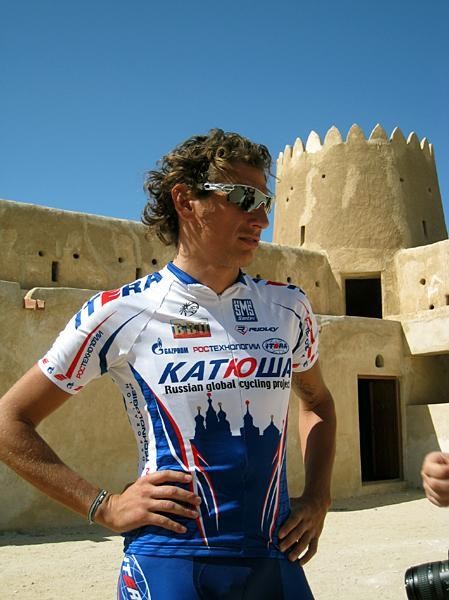
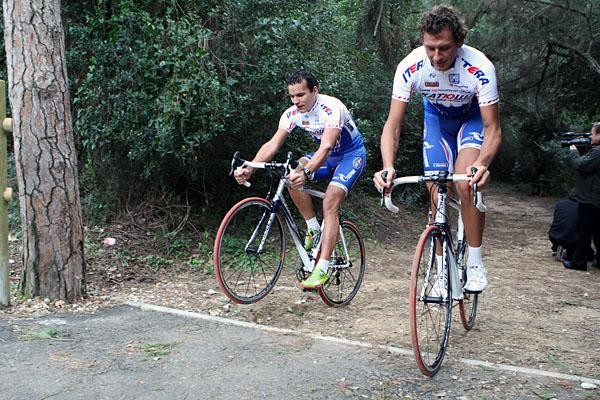
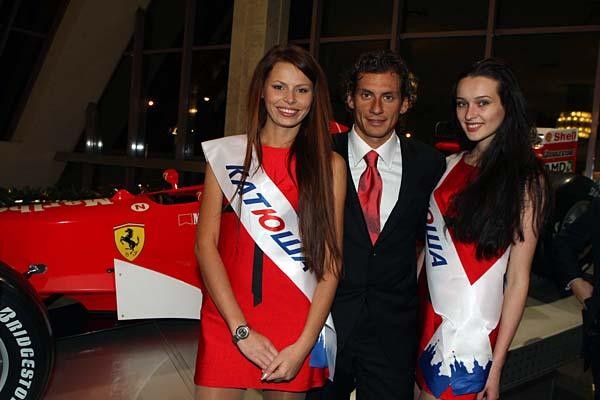
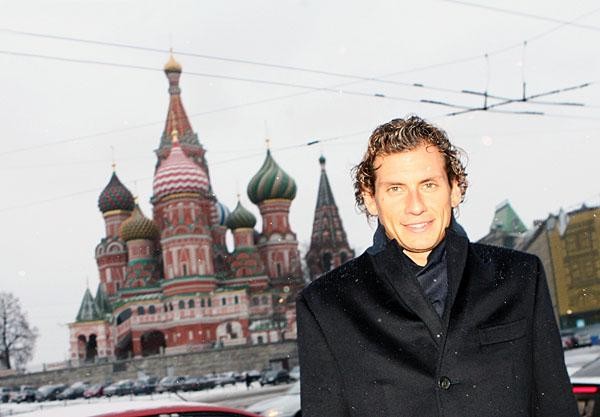
An interview with Filippo Pozzato, February 25, 2009
After a season of near misses Filippo Pozzato is determined to make 2009 a winning year with his new Katusha team. Cyclingnews' Gregor Brown spoke with the former Omloop Het Volk and Milano-Sanremo winner prior to the start of his Spring Classics campaign.
Perhaps you first came to know Filippo Pozzato when he appeared on television screens with his hands raised in a victory salute at the end of Tour de France's stage to Saint Brieuc in 2004. He was only 22 years old then and developing under the sharp eye of one of Italy's greatest directeur sportifs, Giancarlo Ferretti.
But Pozzato was already Italy's hidden jewel. He took home the silver medal at the Under 19 World Championships in 1998 and claimed medals in several other track events in 1998 and 1999. His progression continued throughout his early professional years with the Mapei squad, where he earned numerous wins in lower level races.
Fame in his home country came in 2003, with wins in the Trofeo Laigueglia and the Tirreno-Adriatico general classification. His '04 Tour win was followed by the HEW Cyclassics in 2005, Milano-Sanremo in 2006 and 2007's Het Volk. He picked up another Tour de France win that year with victory on stage five.
The 2008 season was painfully void of big victories for the rider from Sandrigo, Italy. Despite a win in the Giro della Provincia di Grosseto, the biggest news of Pozzato's season came during July when rumours revealed he would ride for Russian team Katusha.
Cyclingnews: Can you explain why you had so many placings, but never a big win in 2008?
Filippo Pozzato: There are years that don't go well, where you don't win anything even though you are flying. Then there are the years when you win, but are seemingly going slower.
The latest race content, interviews, features, reviews and expert buying guides, direct to your inbox!
Truly, I have never gone as strong as I did last year. I was good from February to October, but there was always something that did not go well. I had eight second places and six third places. That was a lot but it does not mean anything – you have to win. This year, I hope to go a little slower and win a lot!
CN: What will make the 2009 season a success?
FP: I need to win more than two races. Six or seven races, with a big race included in those – Flanders, Roubaix, Sanremo or Lombardia – I want to go strong from Tirreno through to Roubaix. Plus a win in the Italian National Championships instead of always finishing second.
CN: How was the off-season for you?
FP: I am 3.5 kilograms lighter than last year at this point, and have been more attentive to what I have been eating. The team then had a 10-day camp in Toscana, then I returned to my house in Monaco before the camp in Spain.
For example, Alessandro Ballan is crazy to stay at home. I told him to come and stay at my home in Monaco. I think it is a mistake to stay at home, one has to travel [to the warmer climates] in the winter. If you want to start off well you have to always train well. Maybe some winters it is fine to stay at home, but this winter it was better not to.
CN: You left your home country for a team based in Russia. Why did you select Katusha?
FP: What teams are there in Italy? Lampre and Liquigas? Lampre is not a strong team. Liquigas made its decision. I still don't understand who made the decision, because I had good relationships with the other riders and team directors. I said okay to a lower-priced offer by them, but at the end they said no.
CN: Will you have help for the Classics with Katusha?
FP: There is Serguei Ivanov; he is one of the riders who I asked the team to sign. There is also Pavel Brutt, Sergey Klimov, Luca Mazzanti. Mazzanti can do well in the Classics and pull strongly on the hills of Sanremo.
The Russians are strong, but they have a mentality that is different from ours. They need to learn how to race with a big team; they don't have to attack from kilometre zero.
CN: The Giro d'Italia starts in your region, Veneto, this year. Are you going to race it?
FP: I want to do it. There are two or three stages that are adapted to my skills. I want to go and do well.
It would be a dream for me to put on the maglia rosa. There are many strong teams that will be there though. However we have Mikhail Ignatiev and Alexander Serov, both of them are going very much for the opening team time trial.
CN: What do you think of the overall parcours?
FP: There is one that I really like, the stage to Valdobbiadene [stage three]. In the finale there are three climbs. It is beautiful. The climbs are long but not overly hard.
Overall, this Giro is hard, however. It will be beautiful to watch, but not to ride. Those first stages might not look tough, but they will be. Whoever wants to win the Giro has to arrive strong and ready to fight in the first week.
CN: You have been professional since the age of 19. How long do you want to continue to race?
FP: I wanted to stop at 30, but now I think I will stop at 35. I have already added another five years!
I have a home. My dad has a metal-working company. My girlfriend and I have a beauty centre, so I have things to keep me busy. You have to keep your mind on cycling, but you also need to put some things in place for later.
CN: Do you feel you need to get more of the big Classics in your palmarès before retiring?
FP: I am not racing for the money. I am racing because I want to win. The problem is that to win is difficult. There are only a set amount of big races a rider like me can win – Sanremo, Flanders and Roubaix – and I battle without 10 guys that can possibly win.
CN: If you win Paris-Roubaix or the Tour of Flanders, would you retire early?
FP: No. For me it would be good to win Sanremo two or three more times. But also a win in Flanders, Roubaix, Worlds and Lombardia.
CN: What do you make of Lance Armstrong's return to cycling after he has won seven editions of the Tour de France and spent three years in retirement?
FP: Armstrong brings a lot of attention and media to the sport, which is good for us. We have to be smart and take advantage of this extra attention.
Maybe he is using the cancer foundation as an excuse to return: to construct a life in politics afterwards. I think the foundation is really the reason. He had cancer and he knows what it means to suffer from it.
See also:
2007
Filippo Pozzato becomes Northern Classics contender
Filippo Pozzato: Pippo as promised
2005
Filippo Pozzato's 2005 diary
2004
Filippo Pozzato: The natural

